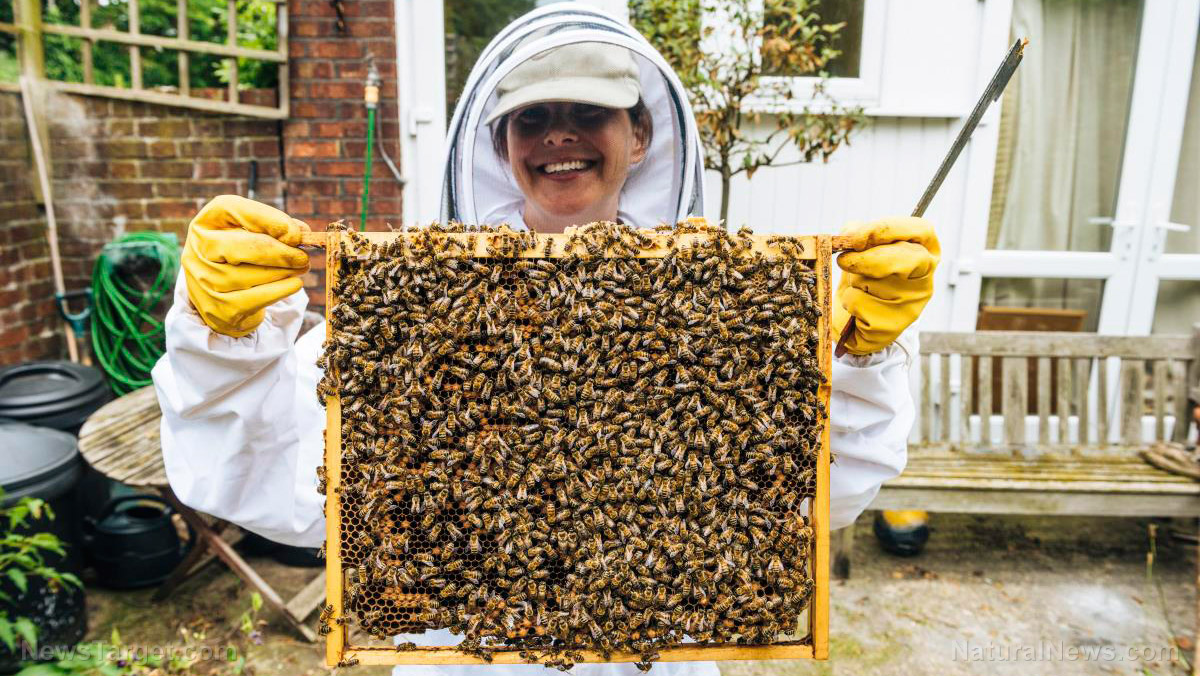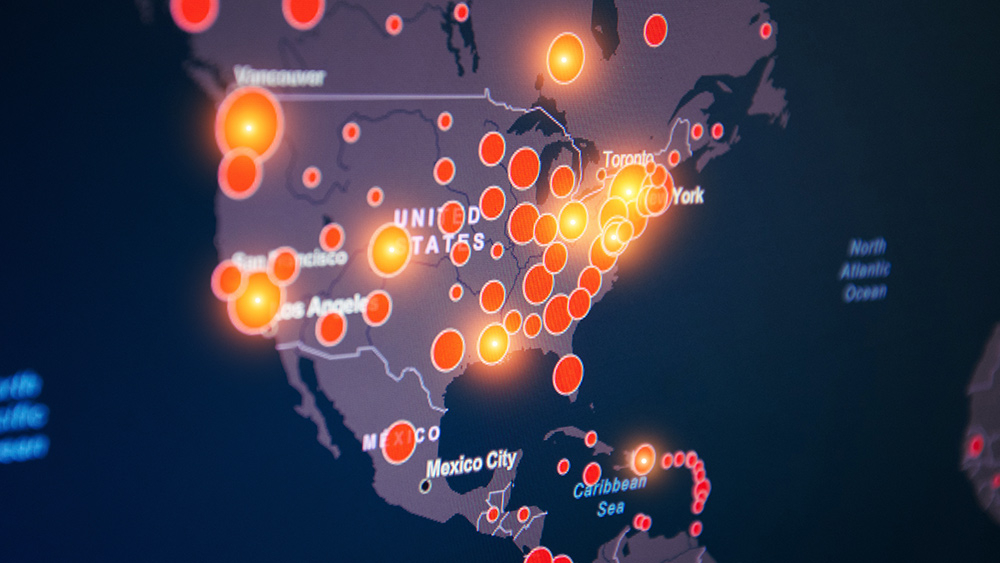Bee populations beginning to thrive as coronavirus lockdowns result in better environments due to fewer cars and less air pollution
05/21/2020 / By Arsenio Toledo

One unexpected development due to the global coronavirus pandemic is its positive effects on the world’s bee populations. Almost every facet of the global economy is at a standstill and large portions of the global population are being forced to stay indoors. This has led to less air pollution, less car traffic and a marked improvement in environmental conditions all over the world.
Because of this, bee populations in bee farms across the globe are finally thriving after years of decline, especially some of the largest bee farms in the United Kingdom.
Helen McGregor, a beekeeper working for Denrosa Apiaries, a bee farm in Scotland, said that the current lockdowns have made people more aware of the insects’ role in nature.
Denrosa Apiaries is the biggest bee farm in Britain. It currently has over 4,000 bee hives, each with a population of around 50,000 bees.
“Less traffic, less pollution is bound to make a difference to the environment which of course has a positive knock-on effect for bees,” said McGregor. “Hopefully we see these changes lasting.”
A vibrant bee farm isn’t just great for bees – it’s great for whole ecosystems. McGregor states that many farmers who live near Denrosa Apiaries’ six different sites depend on the bees to help pollinate their crops.
“It’s very early in our season to say what production is going to be like but the bees are busy bringing back nectar and pollen.”
I took these on 4/11, but our honey bees are THRIVING rn. These little creatures are so sensitive to everything but in the middle of a pandemic ours have been doing better than they ever have in the past 8 years. #SavetheBees bc we’d be in worse shape than we are now w/o them. pic.twitter.com/62s0IEyKq9
— Hannah (@gracehannah317) May 13, 2020
Fewer cars, less air pollution means fewer bee deaths
In North America alone, it is estimated that around 24 billion bees and wasps are killed every year due to colliding with vehicles on roads. The lack of air pollution from vehicles and factories is also contributing greatly to the health of the bees.
Mark Brown, professor of evolutionary ecology at Royal Holloway, University of London, said that the lack of air pollution means bees can better care for their young. Furthermore, the lack of pollutants in the air helps bees detect floral scents, leading to them being able to pollinate plants easier.
As the economic effects of the coronavirus pandemic are forcing local governments in the U.K. to enact budget cuts, many have ceased maintaining road verges, the neat and usually trimmed strips of vegetation that line roads. This, in turn, has turned these strips into lush habitats where flowers can bloom, which is great for bees, who are reaping the benefits of their new and unexpected sources of food.
In fact, this may help Brown and other ecologists in the U.K., as they have been campaigning for local governments – councils, as they are often referred to – to allow the vegetation in road verges to grow. Not only is this beneficial for the environment, but councils won’t have to spend money hiring people to keep the grass trimmed.
A thriving bee population is also very good for the economy, especially since they fertilize around a third of all food grown and 80 percent of the world’s flowering plants. According to one study from the University of Reading, bees and other pollinating creatures have a global economic value of around $150 billion.
Governments around the world have a clear, financial incentive to maintain healthy, bee-filled environments. Fortunately, people with small gardens in their backyards can also help keep local bee populations healthy.
Listen to the Health Ranger Report as Mike Adams, the Health Ranger, talks about the importance of fortifying your food stocks through gardening.
“Resilience gardens” and other kinds of backyard and community gardens can boost local bee populations
During World Wars I and II, Canadian civilians planted “resilience gardens” in their yards as a way to support local food production, which then supported their soldiers fighting abroad. As the coronavirus pandemic has weakened the world’s food networks, perhaps it is time to bring this trend back and to begin planting gardens to protect communities against food supply issues.
Starting a garden, especially in urban areas, either in a back or front yard or in a communal plot of land, can help mitigate food security issues. With the rise in bee populations, first-time urban gardeners can use this to their advantage, as food crops are heavily dependent on wild insects such as bees, flies and butterflies to help pollinate their crops.
However, not all bee species are beneficial for food security.
Canada, for example, has over 850 native species of bees. However, the non-native common European honeybee has put the country’s native bee populations at risk, as studies have indicated that the European honeybee may be transmitting diseases and causing previously common Canadian bee species to become endangered.
This can have long-term impacts on the pollination of not just food crops, but also native plants. This, in turn, can have a disastrous impact on urban food security.
By planting a resilience garden in a yard, a rooftop or a communal plant of land, native bee species can be enticed to return and flourish in areas where they haven’t entered in a long time.
This creates a positive feedback loop, as local bee populations thrive, gardens can become more plentiful, which supports the bee populations.
Resilience gardens can be grown almost anywhere in a city, from balconies to vacant lots and rooftops. Gardens support native biodiversity, provide many mental health benefits and can give people under lockdown a chance to be active and interact with nature.
Importantly, they create communities that are fortified against the food shortages that are threatening the world – and it’s all thanks to the busy little pollinators that are now being given a chance to heal and grow.
Sources include:
Tagged Under: air quality, animals, bees, biodiversity, China, conservation, coronavirus, covid-19, Ecology, environment, Flu, food supplies, green living, home gardening, honeybees, infections, outbreak, pandemic, Plants, superbugs, survival, virus, wildlife
RECENT NEWS & ARTICLES
Pandemic.News is a fact-based public education website published by Pandemic News Features, LLC.
All content copyright © 2018 by Pandemic News Features, LLC.
Contact Us with Tips or Corrections
All trademarks, registered trademarks and servicemarks mentioned on this site are the property of their respective owners.





















